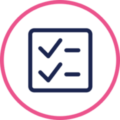Year 7 can be a make-or-break year for developing key English skills
With the secondary curriculum just around the corner, Year 7 provides an opportunity to cement the English skills required for success later on. As the pace of learning quickens, so does the need to understand the increasingly complex texts which delineate a Year 7 or 8 English programme from the earlier years of school. But first, let’s clear up the distinction between English and literacy.
English vs literacy
Even though English and literacy are not the same thing, some schools in New Zealand will use the terms interchangeably in their programmes. In Australia, the learning area of English is made up of three ‘strands’: language, literacy and literature and these terms may be used more explicitly to describe what a child learns in their English class.
Put simply, “literacy” is the ability to read and write. While reading and writing should be developed across all learning areas, English is the subject in which most direct literacy instruction happens for Year 7 learners.
Following a sequential and structured literacy programme is the best way to ensure reading and writing skills are developed. In their English modules, Year 7 students must have opportunities to work on higher level comprehension skills but for many students, there is still work to be done on learning the rules of reading. The explicit teaching of word recognition and drilling spelling rules really helps students improve decoding skills and reading fluency. In turn, this boosts a Year 7 learner’s vocabulary and tools to use in their own writing.
Literacy experts like to say that reading and writing are two sides of the same coin. It can be hard to say which skills should come first! A young person’s brain is enormously elastic and makes connections at a rapid pace. Therefore an effective Year 7 English programme will allow students plenty of opportunities to use their knowledge of texts to plan, draft and publish texts of their own. Year 7 students need to be able to write for a distinct purpose so a solid English programme should encourage the writing of imaginative texts as well as informative and persuasive pieces.
Components of literacy teaching
- Oral language – both receptive and expressive
- Phonological awareness
- Vocabulary development – both oral and written
- Word derivations
- Spelling rules and conventions
- Comprehension
- Grammatical rules
- Sentence types and structures
- Word choices
- Knowledge of text structures and text features
- Interpreting and analysing
Building a love of literature in Year 7 English
The exposure to and exploration of stories is often the most memorable part of an English programme. As adults many of us will recall doing Romeo and Juliet, studying The Outsiders or remember the spine-tingling disbelief inspired by a Shirley Jackson or Ray Bradbury short story. These days, the texts may have been updated — as have the tools for exploring them — but encouraging a love of story is still at the heart of a strong English curriculum.
That’s because by the time they reach Year 7 learners are ready to engage with some of life’s thornier aspects and literature provides an excellent arena for doing so. By reading stories, learners can experience different worlds, empathise with characters who are different from them and also see how characters like them cope with life’s challenges.
See how EP’s bank of literature lessons can enrich a Year 7 English programme
Is rote, right?
Given the extremely diverse origins of English, the rules of the written language are unpredictable and can be hard to explain — let alone learn! But there are rules, and with a sequential set of learning resources at their fingertips, teachers and parents can navigate students through the complexities of the English language.
When learning punctuation and grammar rules, students do need to “drill” the basics to some extent. There’s no better way for learners to master the foundational rules of the written language such as punctuation, verb tenses and agreements, word classes and sentence structures. That’s why a digital learning platform is excellent for engaging students in interactive learning content. It’s fast, fun and full of variety in both content and task design.
To tech, or not to tech? That is the question.
Some parents may recall the days of rote learning spelling rules, endless grammar exercises and painful comprehension questions. However, an effective language and literature learning program today should place key English concepts in context – and online tools can make this a lot more fun.
What’s more, incorporating digital tools in the classroom can motivate Year 7 learners. Gamifying the learning process with a competitive tool like Dash is a great way to keep the pace of learning fast and challenging. Quizzes, self-assessments and timed exercises help learners develop mastery of English language, literacy and literary concepts and enable teachers to easily see progress.
The ability to set tasks and deadlines for completion is also important for Year 7 teachers. This teaches students the time management skills needed for successful independent learning as well as those important self-management attributes.
Designing Year 7 lessons that motivate and stimulate
Using a digital learning platform allows teachers to design flexibility and self-direction into learning progressions. A subject like English is ideal to explore in a learner-led environment because learners can choose their own literary texts to explore. A certain novel, poet or graphic novel may spark an interest in geography, history, an unfamiliar culture or historical event. This in turn can lead Year 7 learners into other subject areas, allowing teachers to create an organically connected curriculum that builds on the specific interests of a student.
An effective Year 7 English programme should promote critical thinking and perspective-taking through the exploration of both contemporary and traditional literature. It is important to expose learners to a range of cultural and historical time periods, as well as a range of text types. Modern English lessons explore traditional texts like novels, poetry and Shakespeare while also exposing learners to newer forms of literature such as graphic novels, digital texts and episodic television series.
With a selection of literary texts and accompanying learning resources at their disposal, Year 7 learners can analyse narrative in the range of forms that most interest and challenge them.
Explore the ways EP can be used to enhance the Year 7 English curriculum
Help your students excel with fun and engaging teaching software

35,000+
Curriculum aligned lessons

10,000+
Learning videos

24/7
24/7 Personal Support

50,000+
Automatically Marked Questions
Why Use EP for Year 7 English?
EP is adjustable for every style of teaching. It’s built to enhance your ability as a teacher and offer your students both structured and flexible methods of learning. The platform allows you to adapt for individual strengths and weaknesses so every learner feels supported.
You can:
Create your own courses
Follow our pre built outlines
Engage your learner with our interest led functionality
Real time 24/7 tracking of student progress

Learn More On How Education Perfect Can Empower You:
For Schools
An online platform made for teachers

